Is your current accounting career not providing you with the financial freedom you deserve? You can enhance your career with a Certified Management Accountant certification!
The CMA designation is a surefire way to boost your overall career advancement and earning potential. With the CMA certification, you’ll soon be on your way to earning a six-figure salary!
What is CMA, and what will you gain when you transform your unfulfilling career with a CMA credential? This article covers the versatile role of a Certified Management Accountant and how to start on this exciting career path.
Originally published Sept. 19, 2016, this article was updated and republished on Dec. 23, 2020.
What is a Certified Management Accountant?
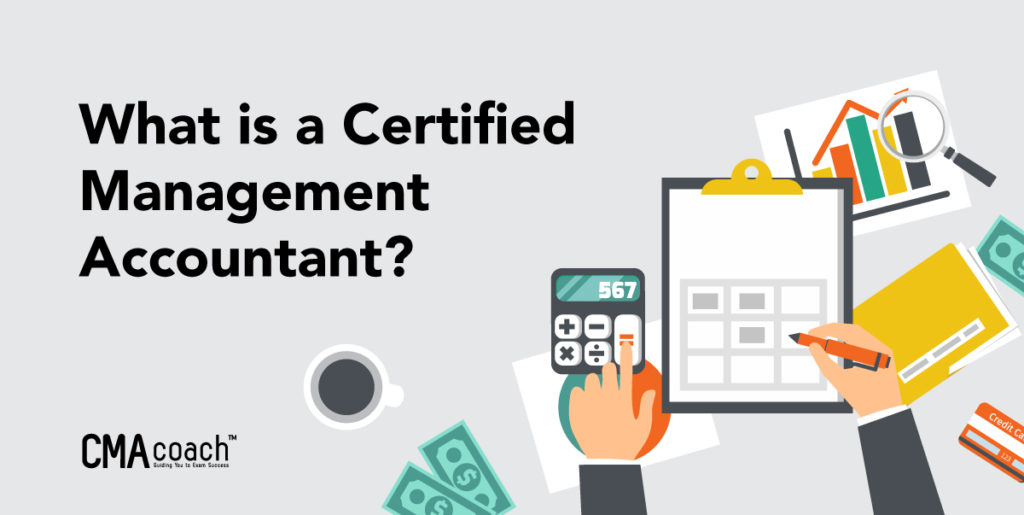
A Certified Management Accountant (CMA) is someone who has obtained a certification through the Institute of Management Accounting (IMA). This certification qualifies a CMA to work in financial accounting and strategic management.
CMA is a globally recognized certification that can credential professionals for jobs in management accounting and corporate finance. There are a wide variety of high-earning jobs that Certified Management Accountants are eligible for.
What Does a Certified Management Accountant Do?
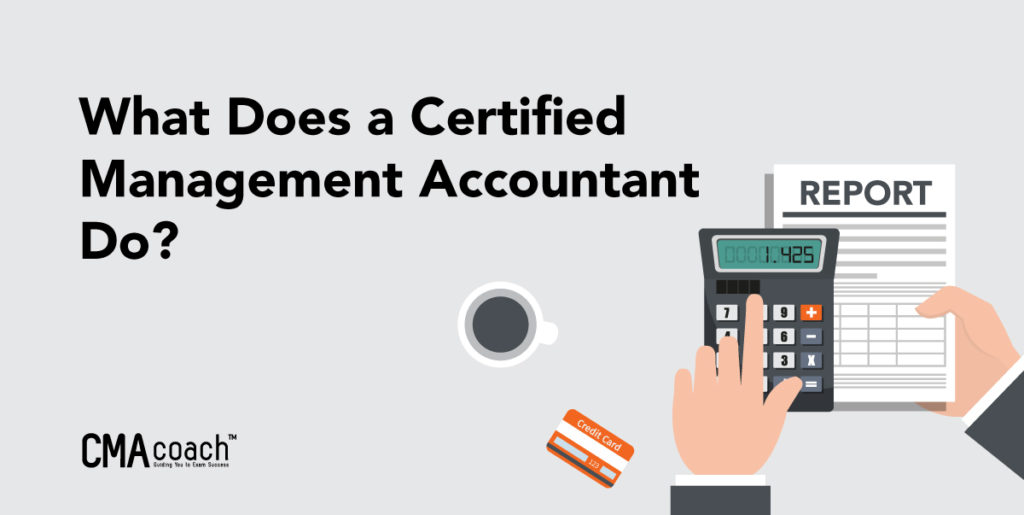
A CMA can work in any number of companies, including government agencies, private businesses, and public companies. Some of the tasks that CMAs perform can include managerial accounting, risk management, planning, budgeting, data analysis, strategizing, and decision making.
Working at a high level for financial planning and business management, there are plenty of open doors for CMA careers.
What Career Opportunities do Certified Management Accountants Have?
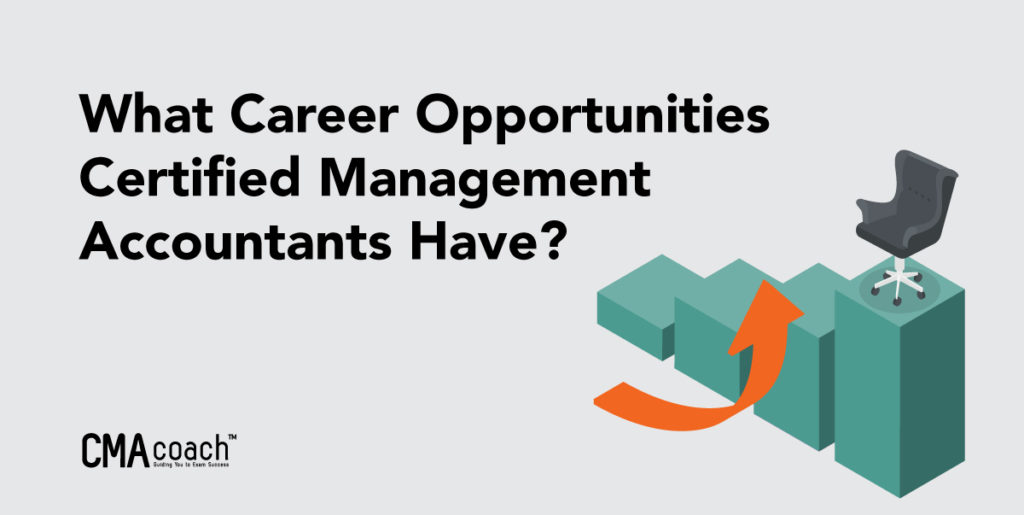
A CMA can work in executive and corporate roles and in any level of management. You may find a Certified Management Accounting job with titles like:
- Management Accountant
- Cost Accountant
- Accounting Manager
- VP of Finance
- Corporate Controller
- Chief Financial Officer (CFO)
- Senior Accountant
All of these well paying, prestigious positions come with numerous benefits.
Benefits of Having a CMA Certification
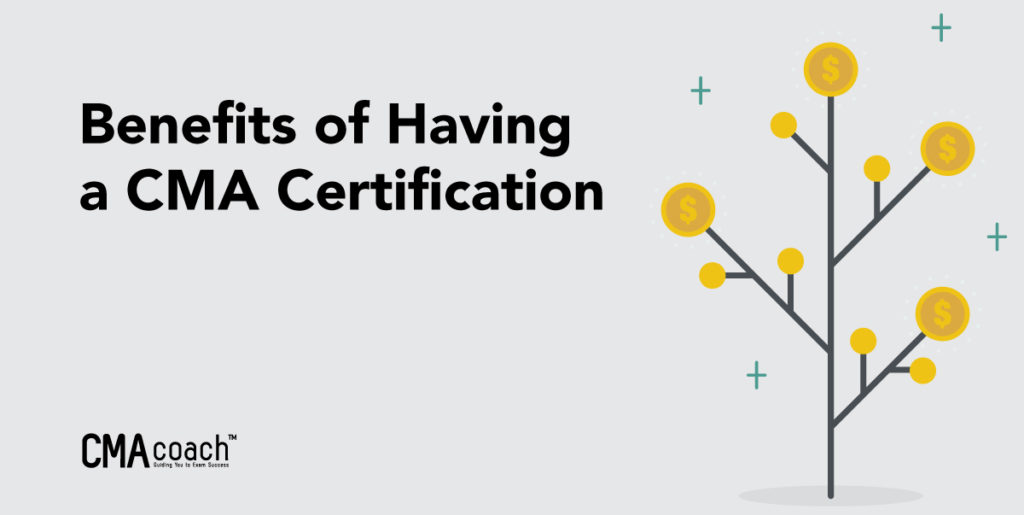
There are plenty of benefits to becoming a CMA. Getting your certification opens doors in the business world, including executive, decision-making roles. You can advance in your career, have international opportunities, and earn more money with a CMA certification.
More Money in CMA Accounting
It’s no secret that CMA accounting professionals have more earning power than their non-certified peers, but are you aware of just how much more?
Around the world, CMA salaries are ⅓ higher per year than the salaries of non-certified professionals.
Accountants with a CMA in the United States earn on average upwards of $123,718 per year – a number that has increased by 4% since 2019 reporting. CMAs make approximately 32% more than non-certified professionals. As a young CMA under 29 years old, you may earn 107% more than your non-certified peers!
More Opportunity After Passing the Exam
Obtaining a CMA accounting certification demonstrates your advanced skill set in management accounting and will therefore distinguish you from your non-certified peers. Even having passed the CMA exam will open the door to more career opportunities and flexibility.
The CMA is arguably the most global management accounting certification and will unlock opportunities wherever you go. Once you are certified, your credentials will give you added credibility and strengthen your negotiating position with employers.
According to the IMA:
90% of Certified Management Accountants would recommend the CMA to a friend.
80% of Certified Management Accountants feel that their certification allowed them to move freely across all areas of business – accounting, executive leadership, operations, IT, and finance.
76% say that new careers were opened to them because of their CMA certification!
CMAs are earning six-figure salaries in a broad spectrum of areas, including:
- Budgeting and Planning
- Corporate Accounting
- Education
- Finance
- General Management
- Information Systems
- And more!
In CMA Accounting, you can hold positions in middle, senior, and top-level management. Here is a sampling of the positions you can hold as a Certified Management Accountant earning a six figure:
Top-Level Management
- Chief Executive Officer
- Chief Financial Officer
- Corporate Controller
- Corporate Treasurer
- Director
- Owner
- Partner
- President
- Senior Vice President
- Vice President
Senior Management
- Chief Accountant
- Consultant
- Accounting Manager
- General Manager
- Manager
- Plant Controller
- Vice President
Middle Management
- Sr. Accountant
- Assist. Corporate Controller
- Consultant
- Divisional Controller
- General Manager
Academic Positions
- Assistant Professor
- Dean
- Department Chair
- Professor
You can read more about what getting certified can do for your career, and everything you need to start studying in my CMA study guide free download.
Certified Management Accountants Get More Raises!
Certified Management Accountants enjoy a higher frequency and number of salary increases throughout their career when compared with non-certified accounting professionals.
According to the IMA 2020 Global Salary Survey, many respondents reported higher salary compensation as a result of their CMA certification:
- 57% received a pay increase within past year
- 80% received a pay increase within past two years
- 77% believe they are likely to get a raise this year
So, what are you waiting for? Click here to get a jump start on earning your CMA certification, and you will be on the fast track to earning that six-figure salary you’ve always dreamed of!
Increased Work Qualifications
The CMA is a qualification that is recognized around the world. When you obtain a CMA certification, you’ll be eligible to get into titled positions in international businesses.
In addition to being considered proficient in financial accounting, the CMA adds management skills to your resume. That’s what really differentiates the CMA from the CPA, providing a wider path to a fulfilling career.
How to Become a CMA

There are a few basic steps you need to take to become a CMA. It will require some investment and hard work, but is well worth it. First, you will have to study for and take the CMA exam. Once you pass, you will have to fulfill the CMA requirements. Read on to get more specifics on how to accomplish each of these steps to becoming a CMA.
Meet the Education Requirements
While you don’t have to finish your degree before you take the CMA exam, CMA education requirements include a bachelor’s degree. That means you can begin the process of getting this accounting certification without a college degree. It’s also important to note that your degree does not have to be in accounting or finance.
The only prerequisite you have to achieve before you take the CMA exam is to become a member of the IMA. Once you are an IMA member, you can register for the CMA exam. Most people invest in a CMA review course, which will provide comprehensive materials to help you study for the CMA exam.
Pass the CMA Exam
To pass the CMA exam, you’ll need to study for at least 16 weeks for each of the two parts. This is best accomplished by choosing one of the best CMA review courses. There are additional resources that will improve your chances of success, like working with a CMA coach or tutor, practice question banks, and additional CMA textbooks.
How hard is the CMA exam? You’ll need to get a score of 360 on each part to pass the CMA exam. The global CMA exam pass rate is only about 45%, and many students have to take more than one try. That’s why it’s so important to invest in quality CMA study materials and use them extensively.
The other box you have to check is CMA work experience, which can also be completed before or after passing the exam.
Get Certified Management Accounting Experience
Before you can finally get your certification, you’ll have to fulfill CMA experience requirements. The IMA requires CMA candidates to finish two full years of qualifying work experience. This work has to be done in financial management or management accounting.
The work also has to be continuous. You can work on a part-time basis, but it will take longer than two years to meet the total hour requirement.
FAQ about Certified Management Accounting
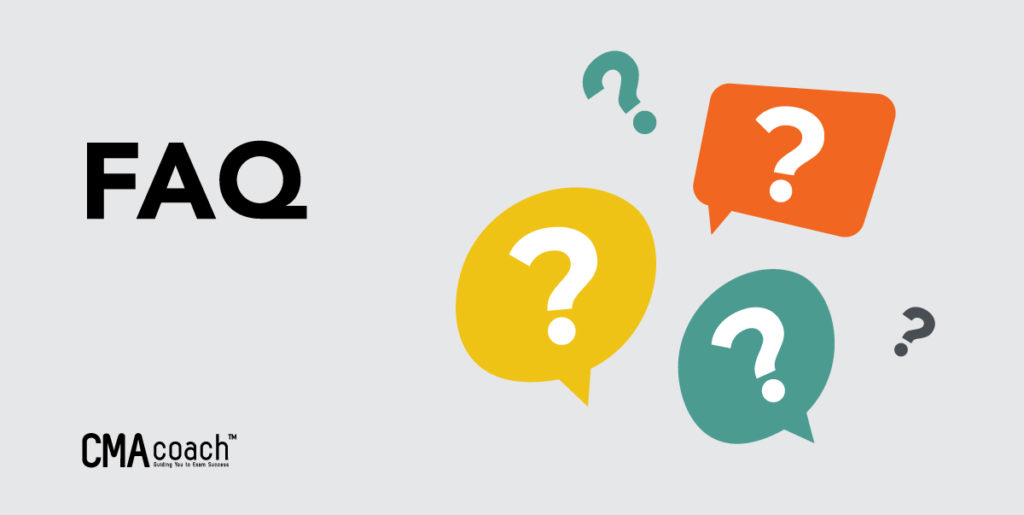
Have some questions about Certified Management Accounting? Read on to find out answers to frequently asked questions.
How Do I Become a Certified Management Accountant?
To become a Certified Management Accountant, you will need to become a member of the IMA, pass the CMA exam, get a bachelor’s degree, and fulfill two years of qualifying CMA work experience.
What is the Meaning of CMA Course?
A CMA course is a useful, some would say essential, tool for passing the CMA exam and becoming a Certified Management Accountant. High-quality CMA courses are authored by qualified CMA experts who have achieved the credential themselves. Courses typically include video content, textbooks, practice tests and questions, reviews, test-taking strategies, and the options for CMA coaching or tutoring.
How Many Years is a CMA Course?
There are two parts to the CMA exam. Each should take about 16 weeks to study for. Most CMA review courses you can buy online will have a specific duration for access, anywhere from a few months to a year or more. You can adjust the timeline of your CMA studies to fit your schedule.
Which Degree is Best for CMA?
There is no specific, required degree to become a CMA. However, some bachelor’s degrees will provide foundational knowledge that will help you in your CMA career. You may want to pursue a degree in accounting, economics, business or finance.
I’m here to help you get started on this exciting career path. If you have any questions, drop them below!
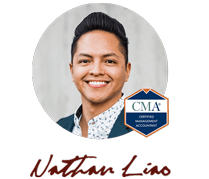
Hi, I’m Nathan Liao (aka the CMA Coach)! For the last 10 years, over 82,000 accounting and finance pros came knocking at my door seeking guidance and help. If you’re also aiming to conquer the CMA exam on your very first try—without wasting away time or money—you’ve found your ultimate guide. Dive in deeper to discover more about me and the dedicated team that powers CMA Exam Academy. Click here and let’s embark on this journey together!

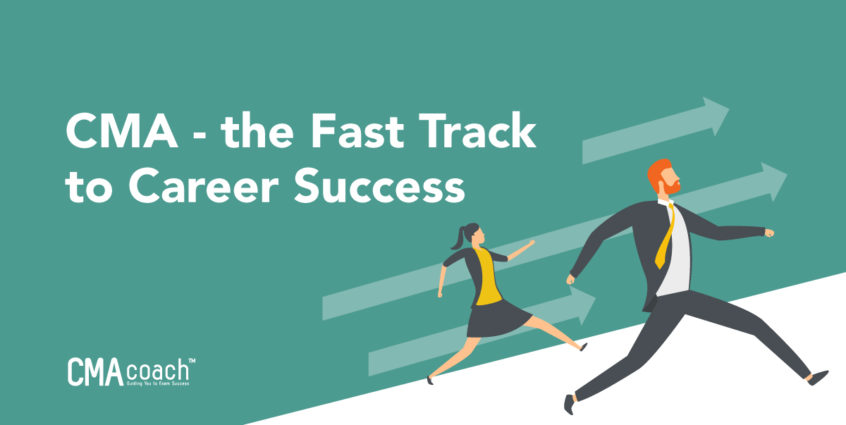
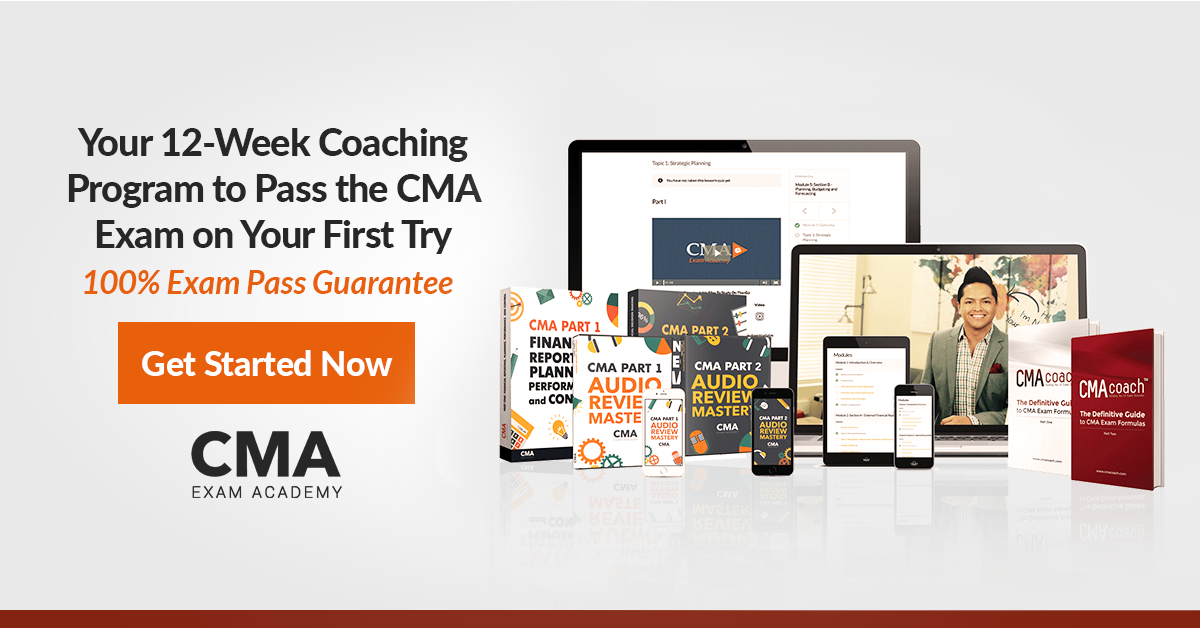
14 Comments on “Certified Management Accountant: The Fast Track to a Six Figure Salary”
Sir,my son has just completed 12th commerce.Should he apply for CMA NOW OR After Bachelor’s degree??plz reply soon as he is really confused.
Hi Payal,
My recommendation for him is to start his CMA exam prep after enrolling in a college or university.
Passing the CMA exam before graduation will give him a competitive edge in the workplace right off the bat. He’d also take advantage of IMA’s student discounts – more info on them here.
Thanks,
Nathan
Hi,
My name is Ravikant. I completed my HSC in the year of 2007 and due to financial crisis I was not able to continue my education further but now I am appearing 2nd year of my BCom degree.
Now I am married and age is 33 years old so if I take admission in CMA will I be able to complete it by continued my job and if completed will I get better job with highest salary package? Please suggest
Hi Ravikant,
Yes, you can absolutely pursue the CMA while working full-time. For tips on how to succeed at it, watch my YouTube videos below:
CMA Study Plan for Working Professionals
CMA Exam – BEST Time Management TIPS
And to discover your salary potential as a CMA, take a look at IMA’s latest salary survey.
Thanks,
Nathan
Hello Nathan sir, my name is Prashant and i recently completed my junior college. Many people recommend to pursue courses like ACCA and CIMA UK and said you should opt for US CMA after graduation. I wanted to know am i doing right by pursuing US CMA with my graduation.
What can i do for my value addition after US CMA.
Hi Prashant,
I compare those certifications in the blog posts below:
https://www.cmacoach.com/acca-vs-cma/
https://www.cmacoach.com/cma-vs-cima-which-should-you-choose/
Check them out to help you make an informed decision 🙂
Thank you,
Nathan
Sir if I choose US CMA COURSE.WILL I GET JOB ASSURITY IN INDIA AS WELL with same Salary package??
Hi Karan,
The US CMA is recognized in India too. For a comprehensive analysis on CMA salaries in India, please check out this salary survey released by the IMA.
Thanks,
Nathan
Hello Mr.Nathan,
I have 12 years work experience in financial accounting & reporting, I lost my job recently & during this time I wish to apply for CMA & complete it.
My plan is to take a break from job for 4-5 months, spend this time on studies & after passing CMA look for a better opportunity.
I want to register ASAP & appear for exams in Feb-18 for both parts (1&2). since I am jobless now, i can spend daily 10 hours on studies.
do you think its possible in this short span? do you recommend to try ?
Please reply at the soonest as I have very less time to decide.
Hi Tanveer,
I’m afraid it’s nearly impossible to prepare for both parts within such a short time span. Is there any way to postpone it for May/June exam window?
To enroll in the complete coaching course, please click here.
It has everything you need to prepare efficiently for the exam without wasting any time figuring out what or how to study.
If you have any other questions, please don’t hesitate to reach out.
Thank you,
Nathan
Sir
I am a software developer with a Btech degree. I have no experience with accounting.
I would like to take CMA and change my career.
Will I get job oppurtunities if I pass CMA with an engineering background.
The answer is yes – the CMA certification will be a proof of your knowledge in finance and management accounting, which will give you a big advantage over non-certified peers.
Sir is it benefical and have a good scope in India for students adopting US CMA course, as india have its own CMA course.
Pls guide me whether it is suited to go for US CMA or indian CMA.
Hi Abhinav,
The Institute of Management Accountants (IMA) and The Institute of Cost Accountants in India (ICAI,formerly ICWA) entered into a mutual recognition agreement. You can take either of the two certifications but if you are planning to work abroad, the US CMA may be the best choice. For more information about the mutual agreement, please check this link.
Thanks and Regards,
Nathan